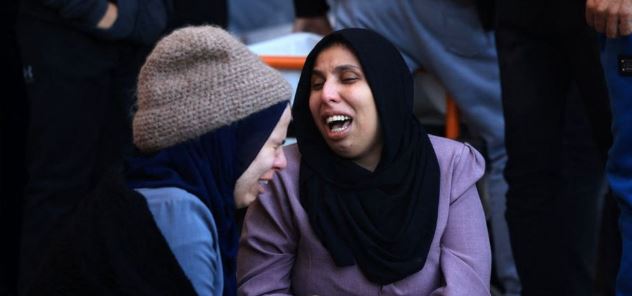Israel Unveils Post-War Vision for Gaza, Focused on Rebuilding and Reconciliation

In the aftermath of the recent conflict, Israel has articulated its comprehensive plans for Gaza, aiming to move beyond the devastation of war toward a future marked by reconstruction and reconciliation. The announcement comes as the international community closely watches developments in the region, eager to understand the path forward after weeks of intense hostilities.
Israeli Prime Minister Netanyahu outlined the government’s vision during a press conference. “Our goal is not just to rebuild the infrastructure that has been affected but to lay the foundation for a more stable and prosperous future for the people of Gaza,” Prime Minister Netanyahu stated. The plan includes initiatives to address the urgent humanitarian needs of the population, with a focus on healthcare, education, and housing.
Sources within the Israeli government have confirmed that consultations are underway with international organizations, including the United Nations and various NGOs, to ensure coordinated efforts in the reconstruction process. The commitment to collaboration reflects a recognition of the magnitude of the task at hand and the importance of fostering lasting stability in the region.
The Israel Defense Forces (IDF) has been actively involved in assessing the damage caused during the conflict and identifying areas requiring immediate attention. The military’s involvement in the reconstruction effort signals a departure from traditional post-war narratives, with an emphasis on rebuilding trust and facilitating positive engagement with the local population.
The plan also includes measures to promote economic development in Gaza, with the goal of creating sustainable livelihoods for its residents. Economic empowerment is seen as a crucial component in preventing future cycles of conflict, and Israeli authorities are exploring avenues for investment and job creation in collaboration with international partners.
While the outlined plans have garnered attention for their ambitious scope, critics argue that the success of these initiatives hinges on the cooperation of all stakeholders involved, including Palestinian authorities and the international community. Achieving lasting peace, they assert, requires a comprehensive approach that addresses the root causes of the conflict and prioritizes the well-being of the people affected.
As Israel begins to implement its post-war vision for Gaza, the eyes of the world remain fixed on the region, cautiously optimistic about the potential for a new chapter of cooperation and reconciliation. The path ahead is undoubtedly challenging, but the commitment to rebuilding and fostering positive change signals a departure from the shadows of conflict toward a future defined by resilience, cooperation, and shared prosperity.





